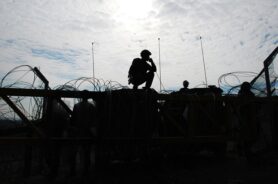Unmanned Aerial Vehicles – more commonly referred to as drones – have been deployed in the context of war as early as the Vietnam War. Since the turn of the century, armed drones have increasingly been used by the United States and its allies in counterterrorism operations, in- and outside conventional warzones. This thesis argues that the growing deployment of drones constitutes part of a broader shift among Western states to counter threats at a distance, while minimizing the human and economic costs of war. It also argues that this approach to war – referred to as remote warfare – helps obscure the loss of innocent life and prevents states from being held accountable.
In the light of this development, the European Forum on Armed Drones (EFAD) has been taken as a case study. EFAD is an international network of civil society organizations that seeks to regulate the use of armed drones by European states. An assemblage approach is taken to understand how and why the members of EFAD act in dynamic alliances of states, institutions, organizations, groups, expert individuals, discourses, treaties, laws and regulations to govern the use of armed drones. Placing the work of EFAD in the light of transitional justice, mechanisms of justice are explored in the context of remote warfare.
This thesis concludes that in the context of remote warfare, such mechanisms must first and foremost bridge the distance between victims, states and the societies that those states represent. In other words, these mechanisms must counter the asymmetry of contemporary warfare by reintroducing the reality of loss and suffering that threatens to slip entirely from our experience of war.
Source:
Snetselaar, D. (2019). Remote Warfare: Remote Justice? An assemblage approach to civil society in an age of remote warfare. Intimacies of Remote Warfare Project



